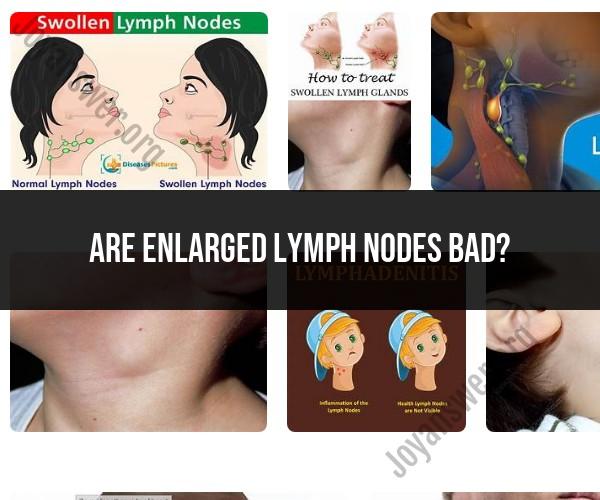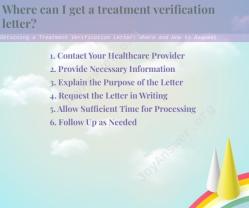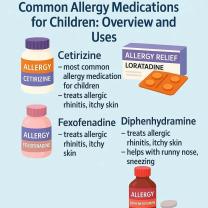Are enlarged lymph nodes bad?
The significance of enlarged lymph nodes varies depending on the cause and the individual's overall health. Enlarged lymph nodes can be a normal and temporary response to infections or other immune system-related factors. In many cases, they are not necessarily "bad." However, the significance of enlarged lymph nodes can be assessed based on the following factors:
Underlying Cause: The cause of the lymph node enlargement is a crucial factor. Enlarged lymph nodes are often a sign that the immune system is responding to an infection, and in these cases, they are typically not harmful. Common infections like the flu, colds, or minor skin infections can result in swollen lymph nodes, and this is considered a natural response.
Duration: The duration of lymph node enlargement is important. If the lymph nodes have been swollen for a short period and are associated with a recent infection, they often return to their normal size as the infection resolves. However, if the lymph nodes remain enlarged for an extended period without an obvious cause, it may warrant medical evaluation.
Associated Symptoms: Enlarged lymph nodes may or may not be accompanied by other symptoms. In benign cases, they may be the only symptom. However, if they are accompanied by other concerning symptoms like unexplained weight loss, night sweats, fever, or painless swelling in other parts of the body, it could be a sign of an underlying health issue that requires medical attention.
Consistency: The consistency of the lymph nodes is another consideration. Benign, infection-related lymphadenopathy often results in soft, tender, and movable lymph nodes. In contrast, lymph nodes that are hard, painless, or fixed in place may raise concerns and require medical evaluation, as they can be associated with more serious conditions, including cancer.
Medical Evaluation: It's essential to consult with a healthcare professional if you have concerns about enlarged lymph nodes. They can assess your medical history, conduct a physical examination, and order tests (such as blood work, imaging, or a biopsy) if needed to determine the cause of lymph node enlargement. Early detection and diagnosis are key in identifying and treating underlying health issues.
In summary, enlarged lymph nodes, by themselves, are not necessarily "bad." They can be a normal response to infections and other immune system-related factors. However, the significance of enlarged lymph nodes depends on various factors, including the underlying cause, duration, associated symptoms, consistency, and the outcome of a medical evaluation. If you have concerns about enlarged lymph nodes, it's important to seek guidance from a healthcare professional to determine the cause and appropriate management.
Are Enlarged Lymph Nodes Always a Cause for Concern?
Enlarged lymph nodes are not always a cause for concern. Most often, they are a sign of a minor infection, such as a cold or the flu. However, there are some cases where enlarged lymph nodes can be a sign of a more serious condition, such as cancer or an autoimmune disorder.
Understanding the Range of Lymph Node Enlargement
Lymph nodes can enlarge to varying degrees. Some people may only have slightly enlarged lymph nodes, while others may have lymph nodes that are very large. The size of the lymph nodes does not necessarily correlate with the severity of the underlying condition.
When to Seek Medical Guidance for Enlarged Lymph Nodes
If you have enlarged lymph nodes, it is important to see a doctor if:
- The lymph nodes are large, firm, or tender.
- The lymph nodes are growing rapidly.
- The lymph nodes are accompanied by other symptoms, such as fever, night sweats, or unexplained weight loss.
- The lymph nodes are in an unusual location, such as the groin or underarm.
Self-Care and Awareness for Healthy Lymph Nodes
There are a few things you can do to promote healthy lymph nodes:
- Maintain a healthy weight.
- Eat a healthy diet.
- Exercise regularly.
- Get enough sleep.
- Manage stress.
- Avoid smoking.
- Be aware of your body and report any changes to your doctor.
Personal Experiences and Insights on Living with Enlarged Lymph Nodes
Living with enlarged lymph nodes can be challenging. Some people may experience anxiety or fear about the underlying condition. Others may feel self-conscious about their enlarged lymph nodes.
It is important to remember that you are not alone. Many people live with enlarged lymph nodes on a daily basis. There are many resources available to help you cope with the physical and emotional challenges of living with enlarged lymph nodes.
Here is a personal experience from someone living with enlarged lymph nodes:
"I was diagnosed with lymphoma when I was 25 years old. It was a shock to me and my family. I was scared and didn't know what to expect.
I started chemotherapy a few weeks later. It was a tough journey, but I made it through. I'm now in remission and I'm doing well.
Living with enlarged lymph nodes has been challenging. I've experienced anxiety and fear about the future. I've also felt self-conscious about my enlarged lymph nodes.
But I've learned to cope. I've found a great support system in my family and friends. I've also found helpful resources online and in my community.
I'm grateful to be alive and I'm cherishing every moment. I'm also determined to raise awareness about lymphoma and to help others who are living with enlarged lymph nodes."
If you or someone you know is living with enlarged lymph nodes, please know that you are not alone. There are many resources available to help you cope with the physical and emotional challenges of this condition.











